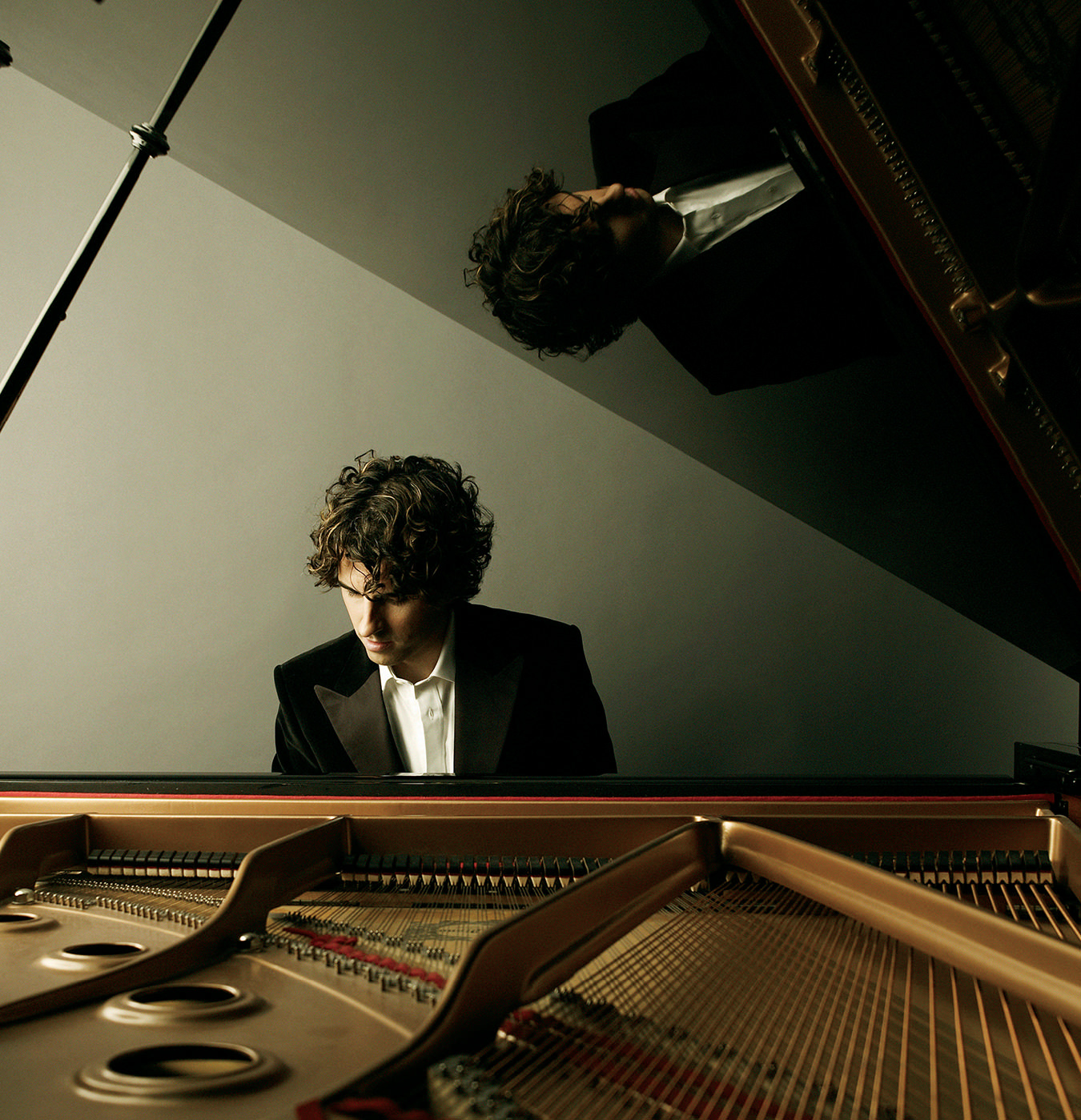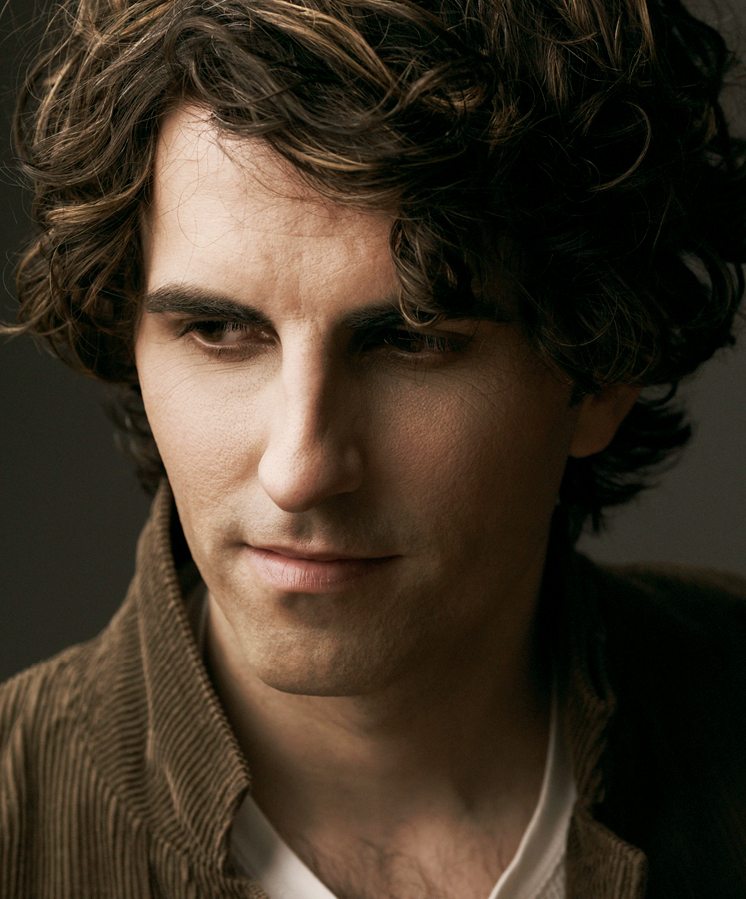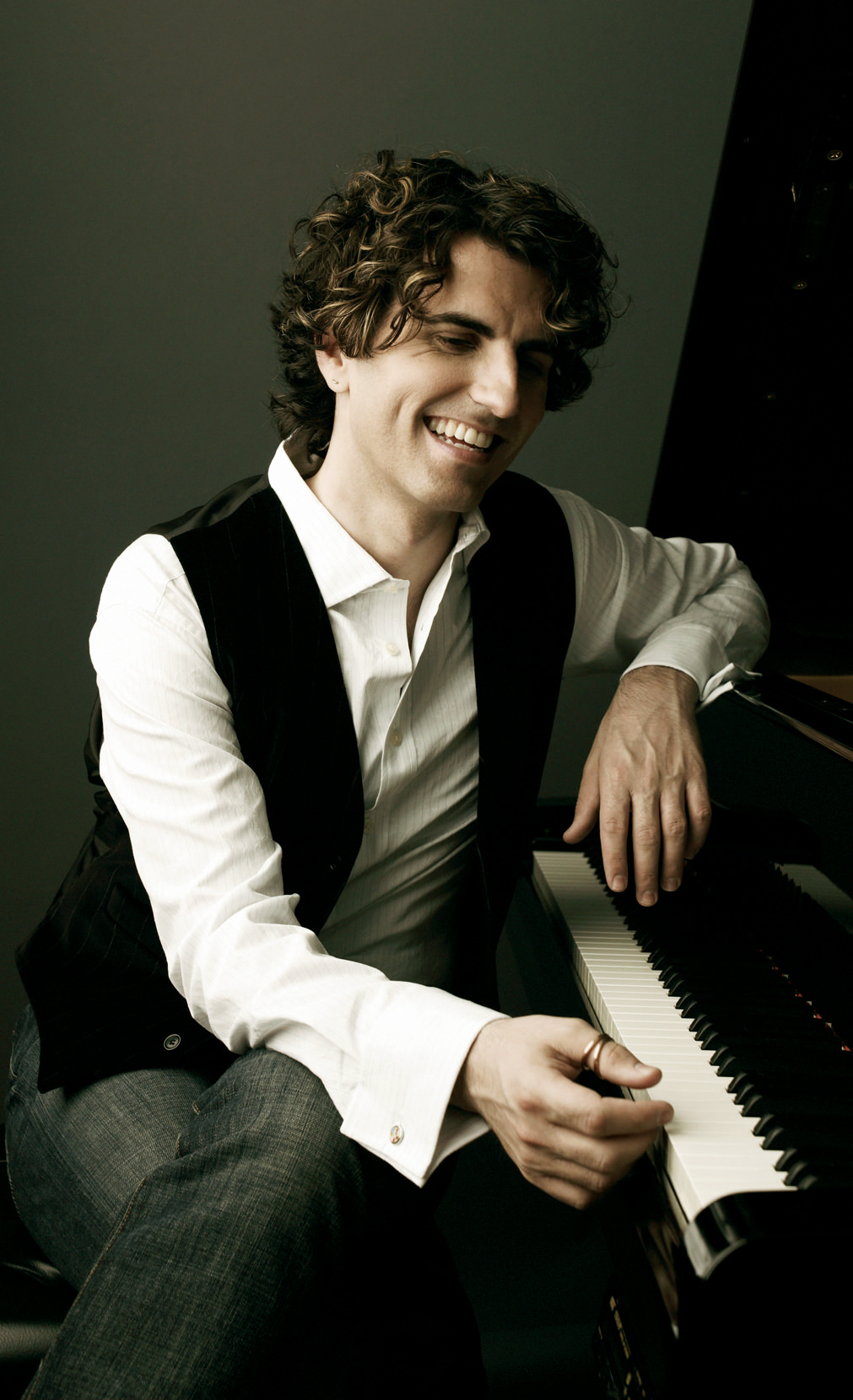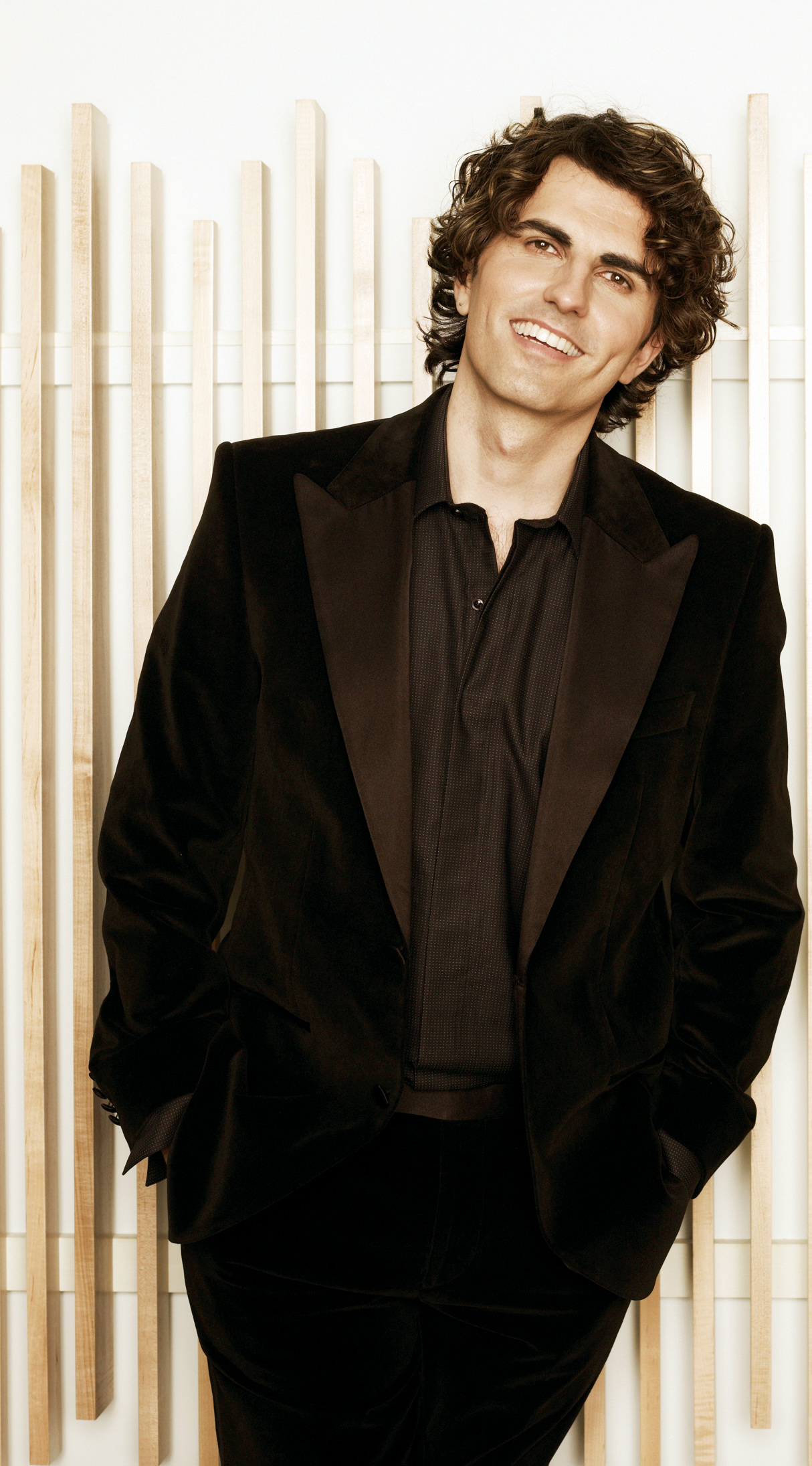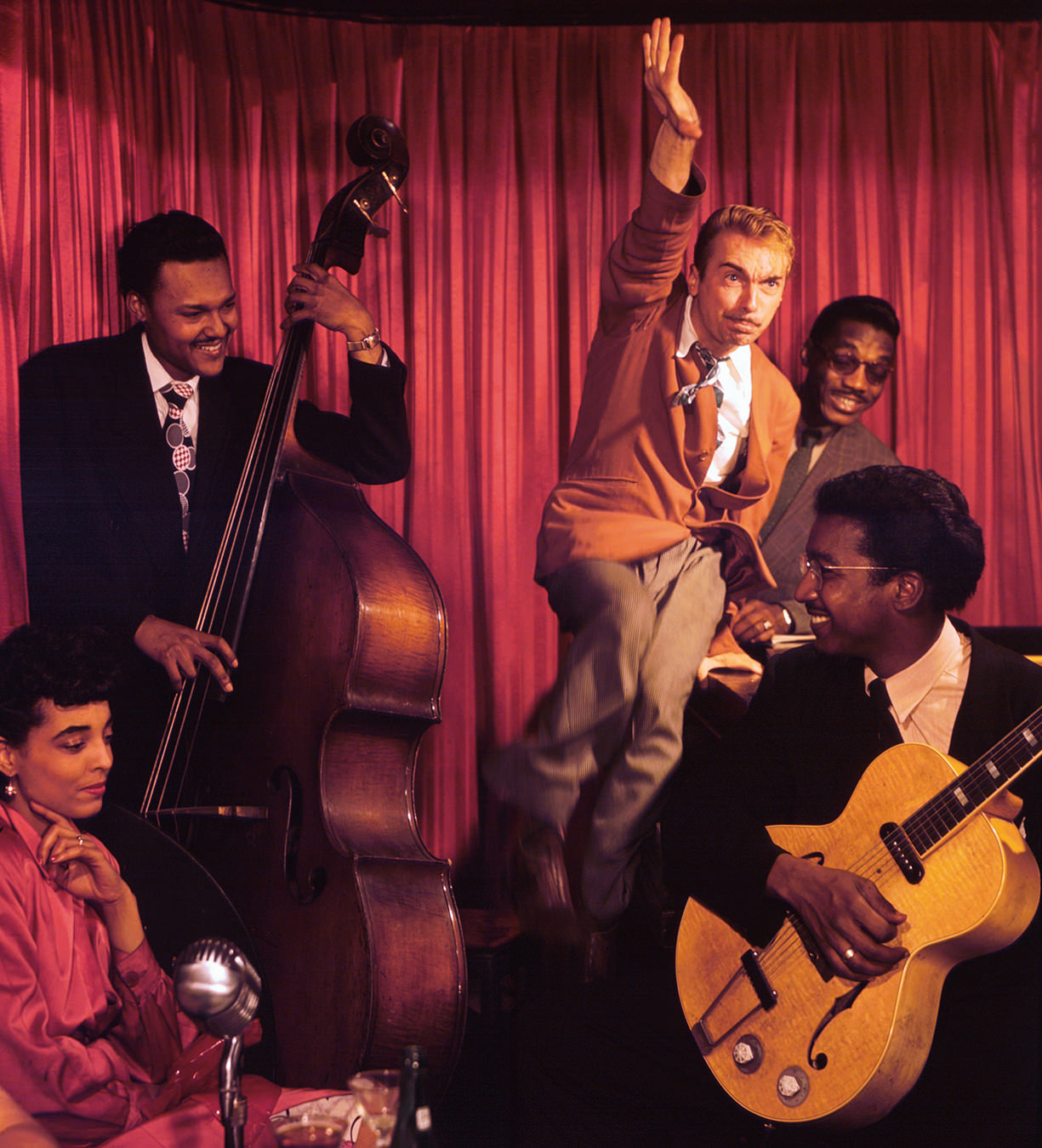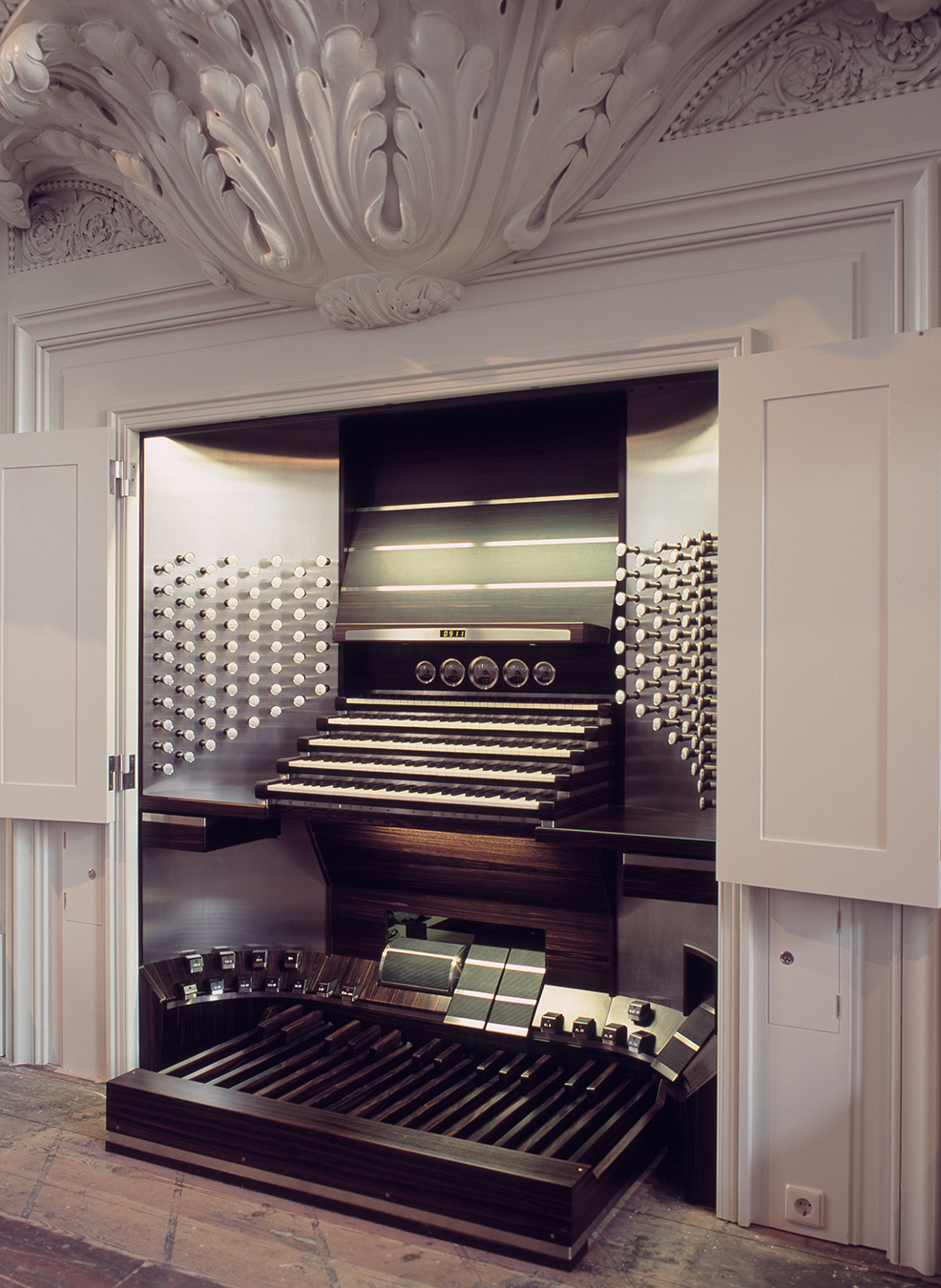Stephan Moccio
The piano man.
These days, the pop stars giving us their best Zoolander from the cover of the Rolling Stone are rarely self-made. More often than not, what we see are the “front men” of a group operation, the fruits of a tightly concerted effort on the part of hard-working industry insiders. The result? The real star system of today’s music industry consists largely of names you and I have never heard.
Stephan Moccio is one such name. Céline Dion has proven a big fan, Sarah Brightman says “[his] music brings beauty, subtlety and poignancy to the senses”, and Randy Bachman deems him “a [musical] wonder”, yet those of us who ignorantly (which is most of us) consume popular music, have never heard of him.
Stephan is a songwriter. A son of rural Ontario, (born in St. Catharines, raised in Niagara Falls), he is the perfect example of a “musician’s musician”, who toils just beneath the glossy surface of manufactured fame. He has worked with such talents as Edwin, Sarah Brightman, Olivia Newton-John and the unstoppable Céline Dion, for whom he co-wrote the massive hit “A New Day Has Come” with Aldo Nova in 2002, but alas, from fame he remains one step removed. “It’s a really strange thing to have your creation played all over the world, and have no one [outside of the industry] know you. I sometimes get the urge to blurt out ‘hey! I wrote that!’”
Be that as it may, Stephan feels very fortunate indeed to have arrived so successfully at the young age of 33, doing exactly as he was divined, while making a formidable living.
Unlike many, he was not a guitar-toting youth dreaming of becoming a rockstar. He chose the much more taxing investment of lifelong classical training, and is now reaping a ten-fold return. As Céline Dion belted out his notes for a very receptive, worldwide audience, his career was catapulted to where he finds himself today, highly sought after and working with his choice of artists.
“I truly feel blessed,” he stresses as we sit in his Toronto studio, Maison de Musique, nestled on a very urbane stretch of King Street East. And so he should. He didn’t grapple for a path in life, wasting time and his parents’ money. Stephan was, as they say, born into it. At age three, his musical family (Stephan’s mother, aunt and maternal grandmother are all professional pianists) had him try his hand at piano. By the end of age four, few had any doubts about the boy’s future.
Today, smack dab in the middle of that future, the walls of Maison de Musique serve as Stephan’s personal hall of fame. Aside from my recognizing a super-glossy Yamaha grand piano (Stephan couldn’t wait the extra six months for the satin finish, which he would have preferred) dominating the main room, his studio looks to me like the deck of the Starship Enterprise.
Budding musicians take heed: it’s terribly unromantic, but learning what to do with all those buttons is what separates the doers from the dreamers. Talent and passion are dealt out in the stars, but as Brahms once noted, “Without craftsmanship, inspiration is a mere reed shaken in the wind”. Fiercely committed to the craft of music making, Stephan has armed his creative passion with the technical savvy to rival any. Having taught himself every aspect of studio production, he is able to single-handedly write, record, arrange, mix and produce an entire album.
And so he has.
Set to be released this Fall, Exposure is a contemporary piano record written, performed, recorded and produced by Stephan Moccio. “This record is not about walking down the street and having someone recognize me,” he asserts, “I’ve always wanted to touch people with my music, and this is a great way for me to do that.”
This is Stephan’s public debut as an artist. Contrary to the big sound of Stephan the commercial musician, Stephan the pianist/composer has made a remarkably intimate, elegant and very emotive record.
Hearing it for the first time, I bid my philistine ear to pay close attention but almost immediately drift off into other thoughts. At first I panic, thinking myself unable to really listen to good music, but then I realize that this is in fact, precisely the point. “I want people to just enjoy. I want this record to allow people to sit still for an hour and just relax and breathe.”
The second time around, the melodies rise and fall to transform the ambiance of my drab home office in to a montage of great memories. Taken by the clarity of mood communicated from composition to composition, I am inspired, to rename each track with childishly exuberant titles like “love”, “rain”, “moonlight” and “starlight”, but shamefully realize that what I’m doing is making a bad postcard out of a beautiful sunset. Each track bleeds into the next with melodic nuance, inspiring in some of us, embarrassing lyrical tendencies. In fact, precisely because of the album’s ability to wholly immerse the listener, Stephan is toying with the idea of a multi-sensory experience for his live performances.
But that’s the first couple of listens. As you make friends with this record, the mechanism begins to emerge, and you recognize the markings of an impeccably controlled, pop sensibility. “This really is a marriage of my classical training and my love of pop music. Many traditional piano records don’t have the same accessibility, the same commercial appeal.”
Having mostly written within the very stringent parameters of a pop song, Stephan has a natural aversion to self-indulgence and is very strict with his creativity. At the same time, moving away from pop’s tendency to over-produce, Exposure was recorded relatively ad lib, over the course of several weeks. “I actually recorded it with most of my studio turned off. I wanted it to sound organic, honest and very intimate. I even had my assistant install new software on my computer so that I couldn’t fiddle; all I knew how to do was press record.”
Perhaps the most decisive thing about this album is that the melodies are so well written, they seem naturally familiar, like a kind of musical déjà vu. Because of this, Stephan’s music has the power to become part of the public consciousness in the same way that Karl Jenkins’s De Beers Diamonds theme “A Diamond is Forever” has lodged itself forever in our minds.
Furthermore, throw a break beat behind any of the melodies or sample them on a hip-hop track, and the music will work perfectly in any context (a well-written tune is a well-written tune). In essence, what Stephan has created with Exposure is a collection of well-crafted, heart felt piano pop, destined to bring piano and pop lovers together at last. How’s that for a foray into the spotlight? Get ready to know his name.
Styling by Elana Safronsky.





